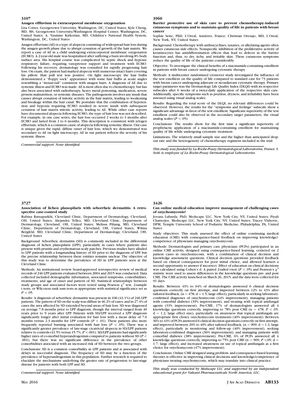Association of Lichen Planopilaris with Seborrheic Dermatitis: A Retrospective Case-Control Study
April 2016
in “
Journal of The American Academy of Dermatology
”

TLDR People with lichen planopilaris often have seborrheic dermatitis, which can delay the diagnosis of lichen planopilaris.
The retrospective case-control study conducted at the Cleveland Clinic investigated the prevalence of seborrheic dermatitis (SD) in patients with lichen planopilaris (LPP). The study reviewed medical records of 246 LPP patients evaluated between 2004 and 2015. It was found that 106 (43.1%) of the LPP patients had a diagnosis of SD. SD was often diagnosed before LPP, with an average of 7.8 months prior, and was associated with delays in LPP diagnosis. Patients with both SD and LPP experienced a longer time to diagnosis after initial evaluation for hair loss (mean delay of 7.6 months) compared to LPP patients without SD (2.3 months). Additionally, there was a higher prevalence of late-stage cicatricial alopecia and a higher rate of comorbid hyperandrogenism in SD/LPP patients. The study concluded that SD is a common comorbidity in LPP patients and is associated with diagnostic delays and a greater rate of progression to late-stage disease. Further research is needed to understand the mechanisms behind these associations.





